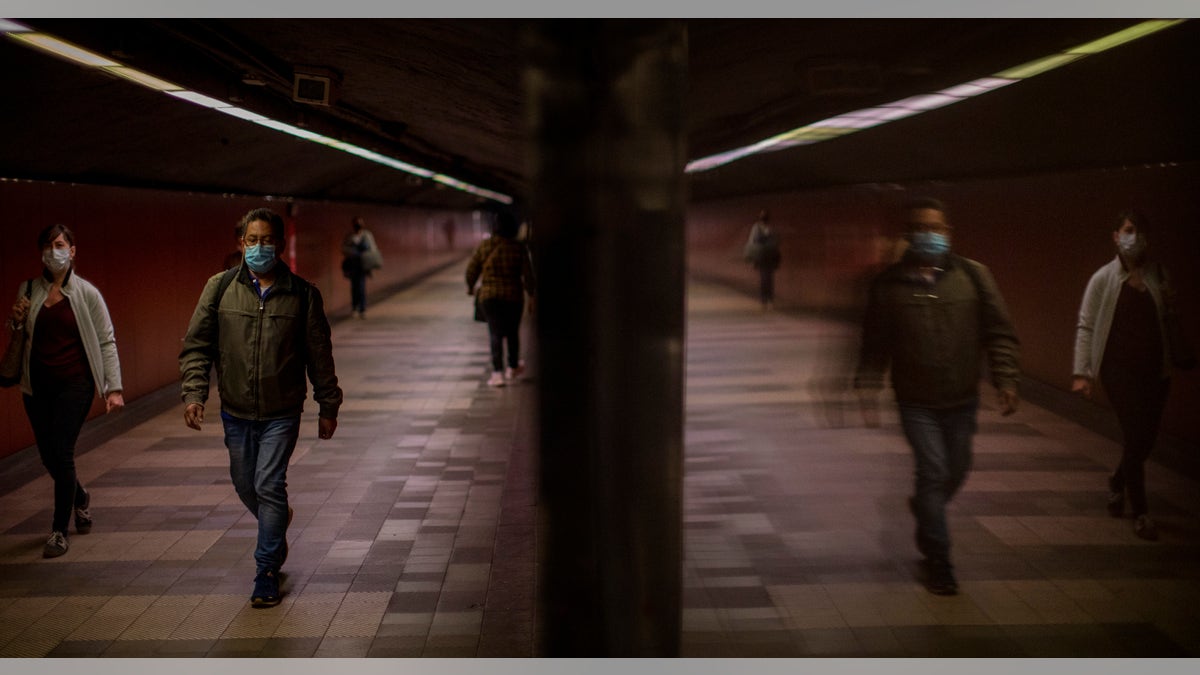America Together: Uplifting images of Americans pulling together during coronavirus pandemic
Every day and in every community, the coronavirus pandemic is bringing out the best in Americans. Take a look at some inspiring images of Americans pulling together in a time of crisis.
MADRID – A Spanish chauffeur who thought he was just picking up another coronavirus patient from a local hospital was surprised when he was instead greeted by health care workers clapping for him.
José María García has been taking patients to and from the hospital for free since the start of the coronavirus epidemic. This week, doctors and nurses wanted to thank him for everything he has done.
“It was a total surprise. I walked through the doors and suddenly they all started clapping. I have to admit that it was very emotional and I started crying,” Garcia told Fox News during a telephone conversation.
A video of the reception went viral on social media, receiving more than 4 million likes within 24 hours.
CLICK HERE FOR FULL CORONAVIRUS COVERAGE
García was presented with an envelope with a card and a financial token of the staff's appreciation for his work.
The 48-year-old had offered his services for free since Spain declared a state of emergency on 14 March and imposed a strict lockdown.
Like other sections of the economy, García's normal work as a private chauffeur dried up overnight.
Taxi associations in Spain estimate they have lost 80 percent of their work since the epidemic began.

Taxi driver Isabel Zarranz poses for a photograph inside her taxi in Pamplona, northern Spain. (AP Photo/Alvaro Barrientos)
SPAIN SET TO FINISH SOCCER SEASON WITHOUT FANS IN STADIUMS
Garcia decided to take patients from a health center in Alcorcón, a town 12 kilometers (7.4 miles) outside Madrid, to a nearby hospital.
“When the lockdown started, there was virtually no work. I am separated from my wife and my two daughters so I am at home on my own. I thought rather than stay at home and do nothing I would try and help,” García. “I know it is a risk but I take very careful measures to make sure I do not get infected. I clean the car after every journey and I wear a mask and gloves.”
García said that after the video of his surprise reception by health workers went viral, he appeared on television in Spain.
“My daughters have not been able to see me face-to-face but they are very proud of what I am doing,” he said.
CORONAVIRUS IN ITALY: SAVING CHEESE TO SAVE LIVELIHOODS
Since the lockdown, the Federation of Taxi Drivers of Madrid estimated that their drivers have made about 75,000 free journeys taking patients or medical equipment.

Passengers wearing face masks to prevent the spread of coronavirus, walk along a tunnel connecting platforms in a metro station in Barcelona, Spain, Wednesday, April 15, 2020. Spain has eased this week the conditions of Europe's strictest lockdown, allowing manufacturing, construction and other nonessential activity in an attempt to cushion the economic impact of the pandemic. (AP Photo/Emilio Morenatti)
Alberto Gonzalo, 45, has also refused to charge patients and medical staff who he takes every day from another hospital in Madrid to their homes.
“The taxi trade has stopped. I decided to do this because I wanted to help. I have not charged (a fare) but I depend on donations from the hospital staff or sometimes from members of my family,” he told Fox News in a telephone interview.
“I clean my car four or five times a day to make sure there is no risk of infection and I also wear a mask and gloves.”
CLICK HERE TO GET THE FOX NEWS APP
Meanwhile, taxi driver Kepa Amantegi drove an Italian woman who was studying in Spain 1,500 kilometers (930 miles) from Bilbao in northwest Spain to her home in Veneto, Italy after she became stuck in Spain.
Before setting off on the journey on 10 April, Amantegi had to obtain permission to leave the country and the student asked the Italian embassy to provide papers so police would let her pass. The round trip was 3,000 kilometers (1,860 miles).
“When we arrived, her mother told me that it was the best present she could receive,” Amantegi told El Correo, a Spanish newspaper.

